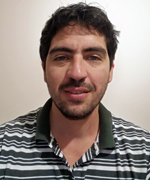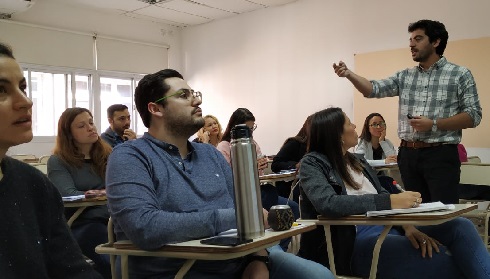Mentoring organization:
Post-fellowship highlights:
|  |
The TDR Clinical Research and Development Fellowship (CRDF) allows early- to mid-career researchers in low- and middle-income countries to learn how to conduct clinical trials. Successful applicants are placed for 12 months in host training organizations (pharmaceutical companies, including members of the International Federation of Pharmaceutical Manufacturers & Associations, product development partnerships, or research organizations) and then receive a reintegration grant for 12 months at their home institution. The fellowship is jointly implemented by TDR, the UNICEF/UNDP/World Bank/WHO Special Programme for Research and Training in Tropical Diseases, and the European & Developing Countries Clinical Trials Partnership (EDCTP). The fellowship is supported by the Bill & Melinda Gates Foundation. View the current call for applications here.
As a university lecturer and Internal Medicine specialist, my interest in research was stimulated by my desire to improve the quality of life of the community in which I work. I applied for the TDR Clinical Research and Development Fellowship to improve my capacities in research and to broaden my perspectives on approaches to research. Prior to the fellowship, I had been involved in some clinical and epidemiological studies as an investigator. The TDR Fellowship was an opportunity for me to establish training and research ties with organizations outside my home country.
From bench to multidisciplinary research
For the 12-month fellowship, I was placed in GlaxoSmithKline Plc’s vaccines research center in Belgium. Under the supervision of Dr Opokua Ofori-Anyinam, I was assigned to the Vaccine Clinical Safety and Pharmacovigilance (VCSP) at the Safety Surveillance and Risk Management (SERM) team under the direct supervision of the team leader Dr Laura Campora and the Safety Scientist Angeles Ceregido. During the fellowship, I participated as the Safety Physician in an epidemiological study and different clinical trials regarding maternal immunization with dTpa and dTpa-IPV vaccines. I have worked in close interaction with different teams such as clinical, regulatory, epidemiological, medical affair, statistics and publications.
In this context, my experience with the Fellowship went beyond mere acquisition of clinical trial research competencies. The TDR Fellowship was a defining moment for my career as it was the first time I became part of a multidisciplinary team, in which each member contributes their knowledge pursuing the same objective of conducting high quality clinical research.
Upon returning to Argentina, I have led the development of a capacity building program in health research in the institution where I work, with the support of the re-entry program granted by TDR. This capacity building program aims to promote clinical research considering the social needs of our communities and the different conditions that might affect the implementation of the results, including factors such as poverty and geographical remoteness. Thus, every research project that is carried out in our institution, even basic research, must consider a multidisciplinary team promoting a wide approach to solve the health problem, including in some cases, community members.
Incorporating Global Health to traditional research thinking
As part of the process of developing this capacity building program I participated in a course on “Non-communicable diseases and Global Health” at the Institute of Global Health (ISGlobal) in Barcelona, Spain, to gain knowledge about this topic and replicate it in my home institution.
During my visit to ISGlobal I had the opportunity to meet Joan Tallada, Senior Advisor, Training and Education from the Institute, who explained to me the importance of empowering communities to improve health conditions.
The field of study of population health problems has recently evolved to include integrated and contextualized approaches. Developments of complex networks provide new and better ways to approach multi-faceted health issues, involving biological, social and political aspects, to increase the impact of solutions.

Dr Vicco leading a clinical research workshop at Universidad
Nacional del Litoral in Argentina
To promote the establishment of intra- and inter-institutional links and to share processes and actions between different stakeholders, an educational and research agreement between my Home Institution, Faculty of Medical Science (UNL) and ISGlobal (Barcelona) was signed.
Thus, during December 2019 a workshop in Global Health was held in my institution, led by Joan Tallada, from ISGlobal. The workshop sought to offer an introduction to some of the most relevant topics on the global health agenda, and how these can be integrated into research and health intervention practice of health professionals.
In the context of the academic agreement between my institution and ISGlobal, a new research path has been paved. Moreover, a Center of Study in Global Health was recently established in the Faculty of Medical Science, under my direction, to develop research and educational activities in this area.

